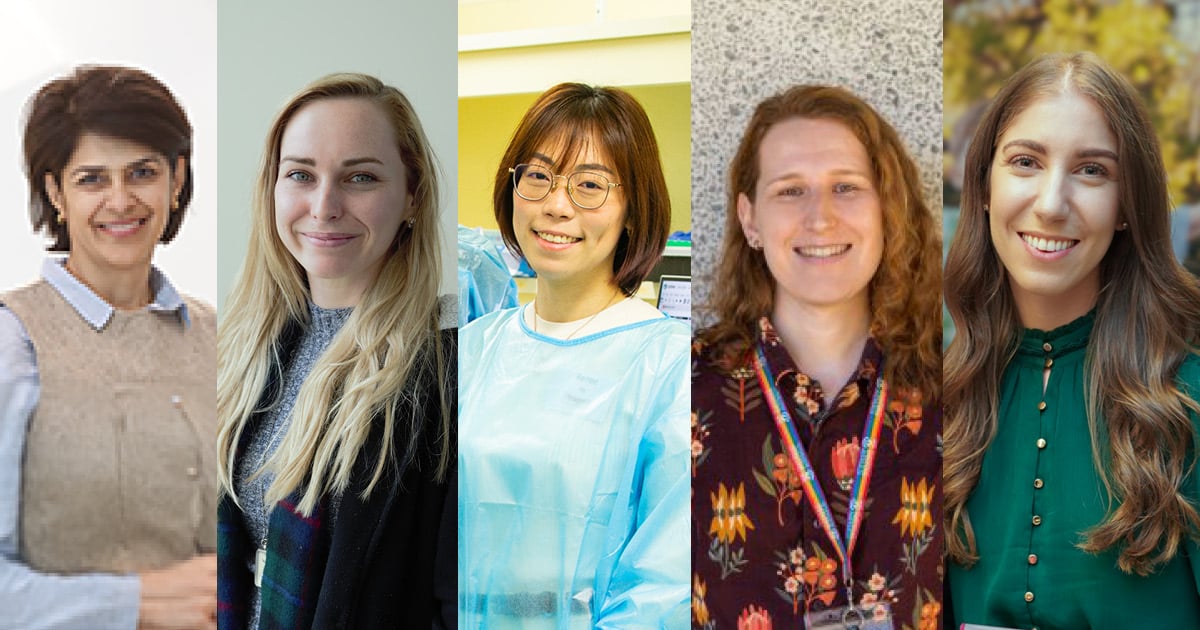
Five researchers from The Kids Research Institute Australia have been awarded three-year fellowships with the aim of keeping more WA-based PhD graduates involved in child health research.
BrightSpark Foundation has partnered with the Western Australian Future Health Research and Innovation Fund (FHRI) and the Stan Perron Charitable Foundation for the 2024 round of the Early Career Child Health Researcher (ECCHR) Fellowships, with five of the eight awarded to researchers from The Kids.
The Fellowships – announced today by Medical Research Minister Stephen Dawson – provide a more certain career pathway for WA’s emerging child health researchers, through early career financial support and mentorship with WA’s leading experienced health researchers.
The Kids Executive Director, Professor Jonathan Carapetis, congratulated the recipients and said the financial support and mentorship available through the program was vital to the future of child health research in Western Australia.
“Fellowships like this are important to ensure emerging local talent and innovation stays in Western Australia and equips them to seek longer term research funding,” Professor Carapetis said.
“We are incredibly grateful for the support from BrightSpark Foundation, FHRI and the Stan Perron Charitable Foundation, for their ongoing investment in children’s health research.”
The Kids fellowship recipients are:
- Infectious Diseases Epidemiology Senior Research Officer, Dr Minda Sarna (Wesfarmers Centre of Vaccines & Infectious Diseases): Dr Sarna will use the funding to assess the cost and cost-effectiveness of RSV-prevention strategies. This research will identify at-risk groups, generate baseline cost data, and support the development of effective immunisation policies for policymakers at the state and national levels.
- Vaccine Trials Postdoctoral Researcher, Dr Sonia McAlister (Wesfarmers Centre of Vaccines & Infectious Diseases): Driven by personal experience with severe vaccine reactions and connections to pertussis-affected families, Dr McAlister aims to establish advanced tools, such as Systems Serology, to better understand the immune response to whooping cough vaccines. Her work will fill critical gaps in knowledge about vaccine schedules and immune interference, guiding future vaccination policy to improve protection for Australian children.
- Airway Epithelial Research Officer, Dr Renee Ng: Dr Ng’s research will aim to advance phage therapy as a safe, effective alternative to antibiotics, improving treatment options and quality of life for children while contributing to the fight against antimicrobial resistance (AMR).
- Strep A Pathogenesis and Diagnostics Research Officer, Dr August Mikucki (Wesfarmers Centre of Vaccines & Infectious Diseases): Dr Mikucki’s research will focus on using ‘healthy’ bacteria found in remote-living children to inhibit the growth of Group A Streptococcus (GAS), with the goal of developing probiotic treatments. This work has the potential to reduce infections, prevent rheumatic heart disease (RHD), and improve the health of at-risk communities, particularly Aboriginal children, who suffer the highest rates of GAS-related diseases.
- Senior Research Officer, Child Disability, Dr Jacinta Saldaris: Dr Saldaris’ project aims to co-design and evaluate online resources to improve emotional and behavioural health in children with intellectual disabilities (ID) and support the mental wellbeing of their caregivers. By providing accessible, cost-effective interventions, this work aligns with the Australian Government's National Roadmap for ID and aims to enhance the quality of life for both children and their families.
